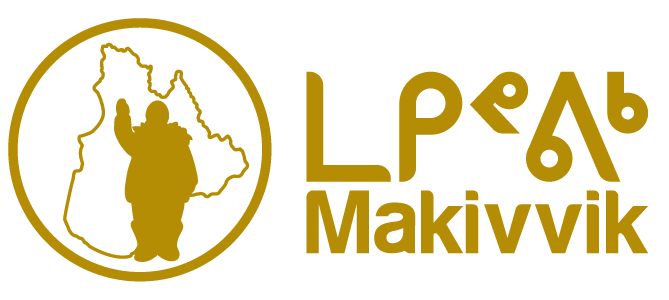Press Release
Kuujjuaq, December 6, 2018 – Makivvik has issued a warning to all hunters and governments to help preserve the future population of caribou herds in the Inuit territory. During the last decades populations of the George River and Leaf River Herds have declined dramatically, deeply worrying Makivvik and the Inuit of the Nunavik region.
Following pressure from Makivvik and other Indigenous groups who use and maintain the Leaf River Caribou Herd, Québec announced the closure of the sport hunt effective February 1, 2018. The population of the herd had crashed from 600,000 in the 2000s to an estimated 187,000 in the fall of 2018.
Under the leadership of Makivvik, several measures have already been taken by Nunavimmiut including a prohibition on harvesting female caribou during the months of March, April, May and June – the calving period. Additionally, some Nunavik communities have further restricted harvesting of caribou by their hunters and visitors to those communities. Makivvik has also supported a resolution voluntarily refraining from harvesting from the George River herd until the herd has recovered.
“I met with Abel Bosum, Grand Chief of the Cree Nation, and Noah Swappie, Chief of the Naskapi Nation, several weeks ago and we discussed issues of mutual concern, including the future of our caribou population. Makivvik will continue to monitor the situation, but in the meantime, we ask everyone to do their part to protect the population levels of our caribou,” said Makivvik President Charlie Watt.
Adamie Delisle Alaku, Makivvik Vice-President of Environment, Wildlife and Research, added his concern, “Our caribou has sustained us for thousands of years and Inuit will continue to pressure governments and other interested parties to respect our preservation plan for the caribou.”
-30-
For More information:
William Tagoona
Director of Communications
819-964-2925
wtagoona@makivik.org
www.makivik.org
Makivvik is the Land Claims Organization mandated to manage the heritage funds of the Inuit of Nunavik provided for under the James Bay and Northern Québec Agreement. Makivvik’s role includes the administration and investment of these funds and the promotion of economic growth by providing assistance for the creation of Inuit-operated businesses in Nunavik. Makivvik promotes the preservation of Inuit culture and language as well as the health, welfare, relief of poverty, and education of Inuit in the communities.

